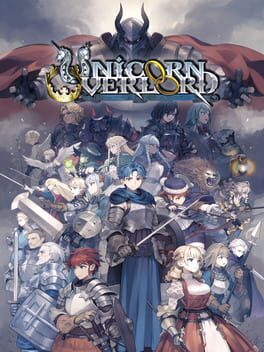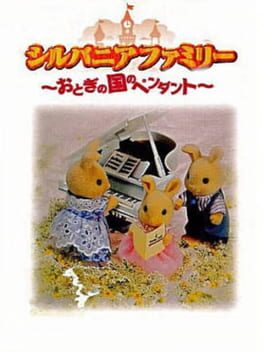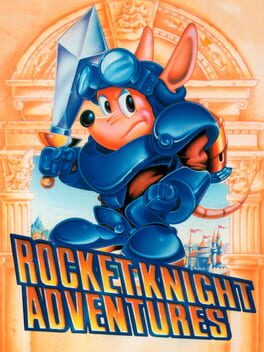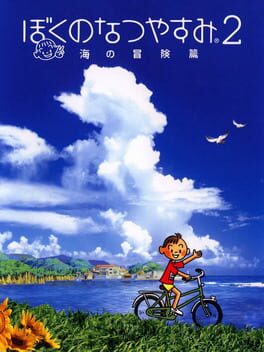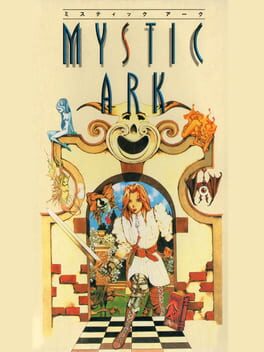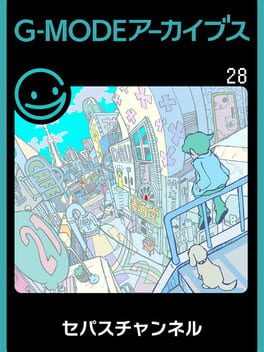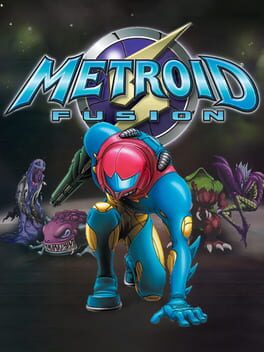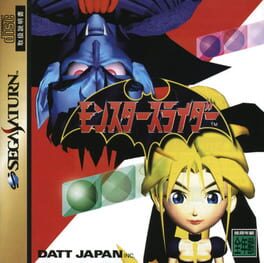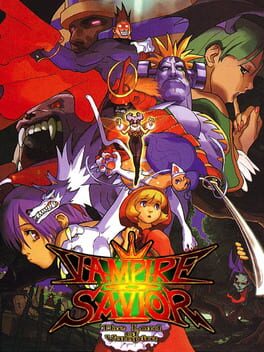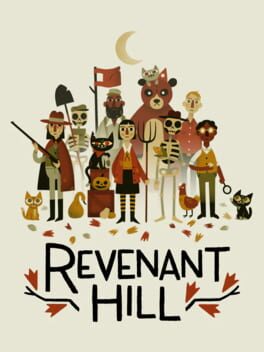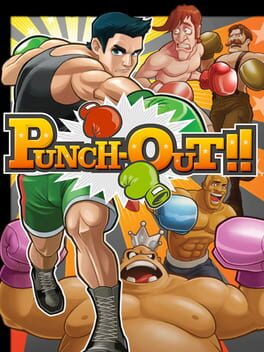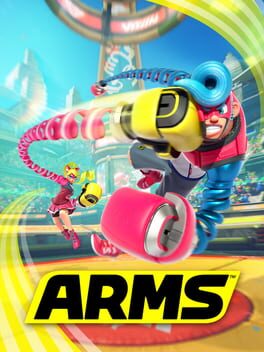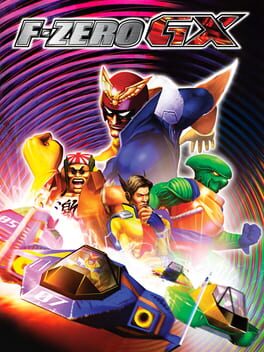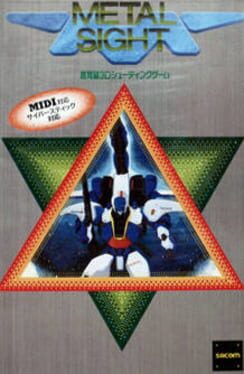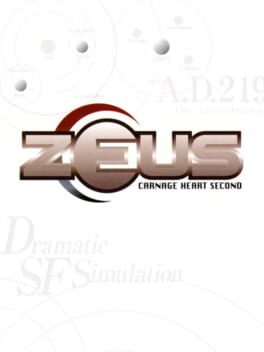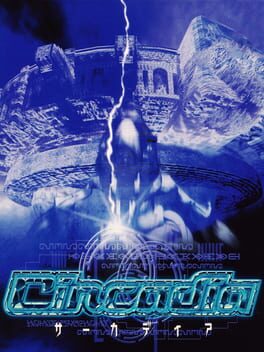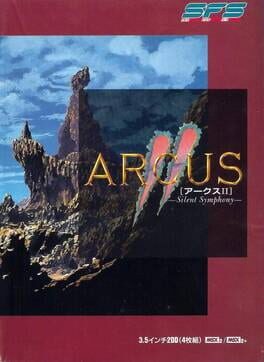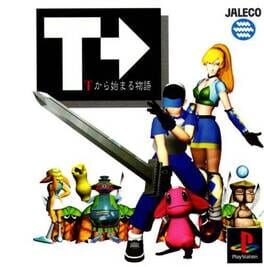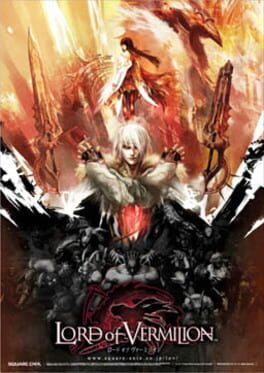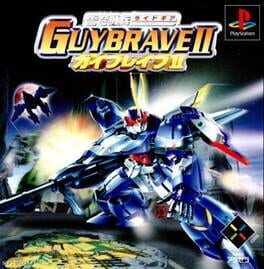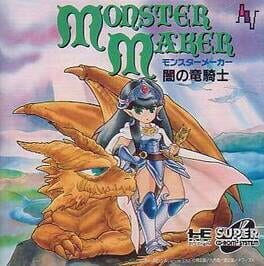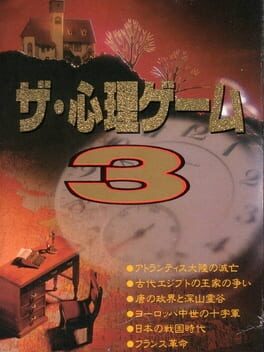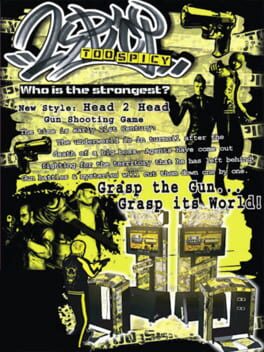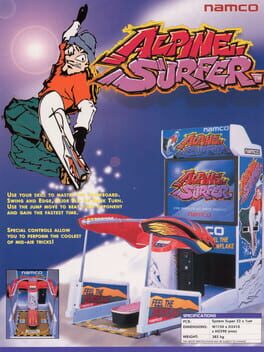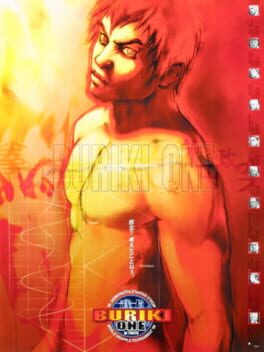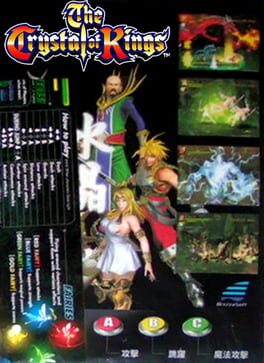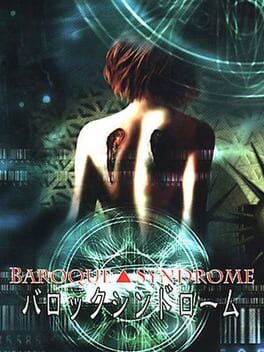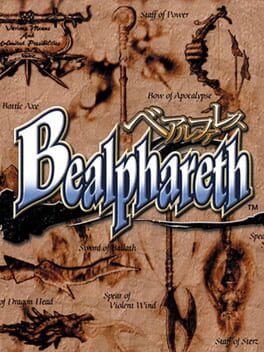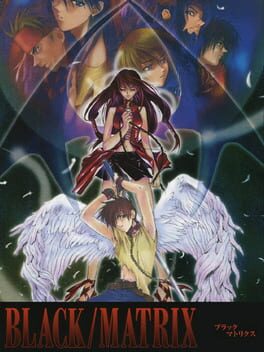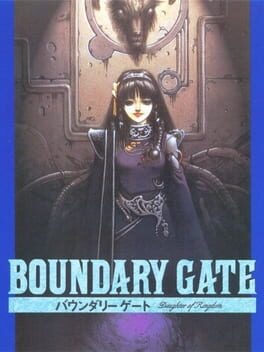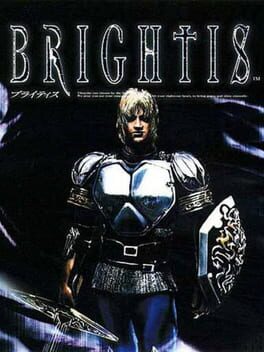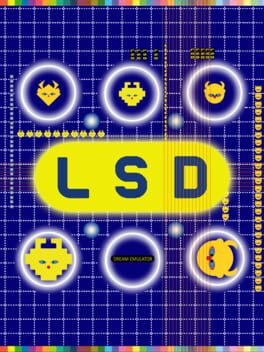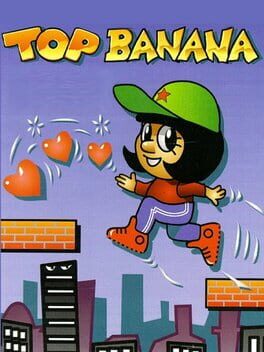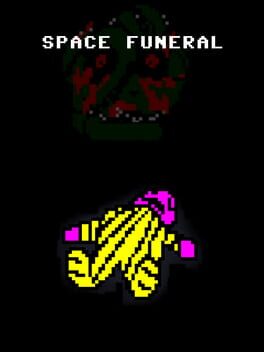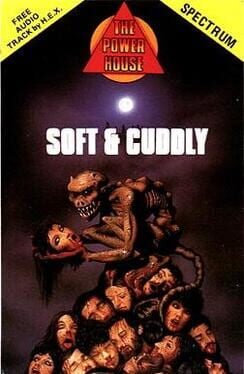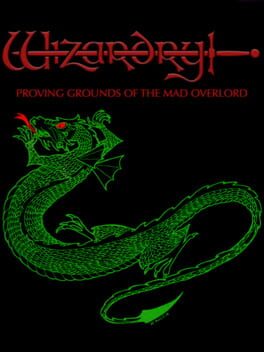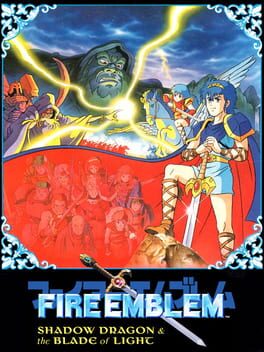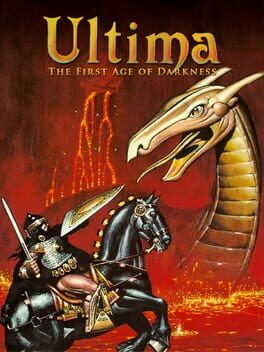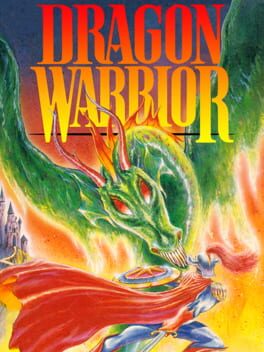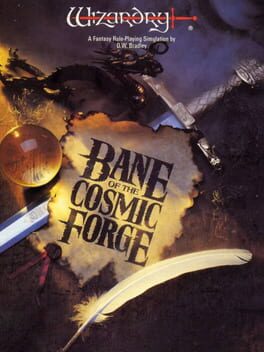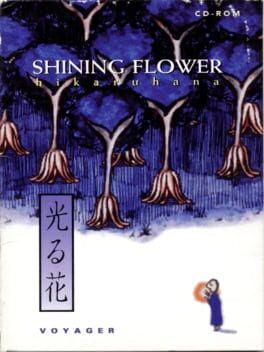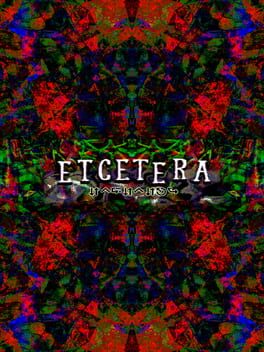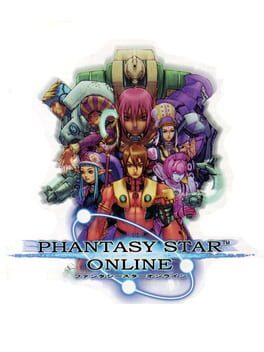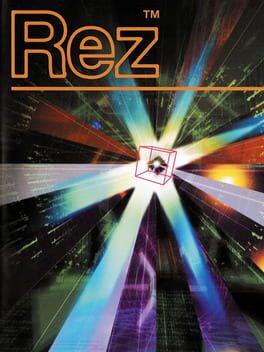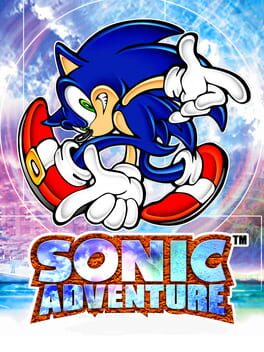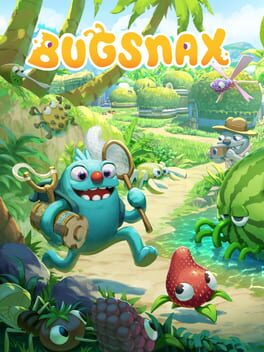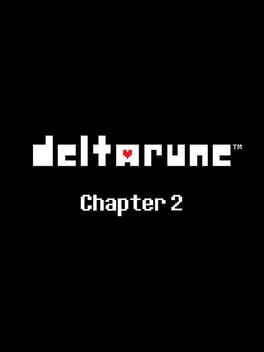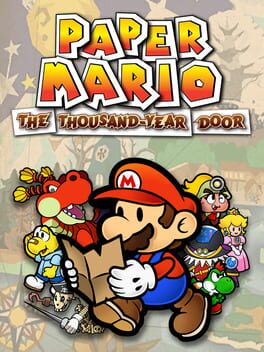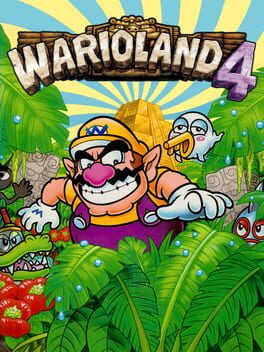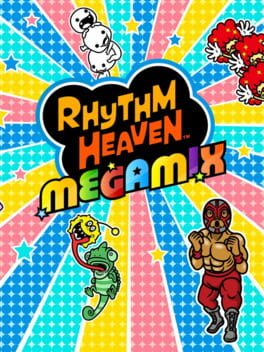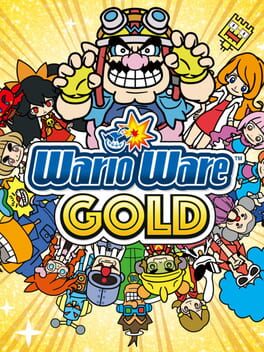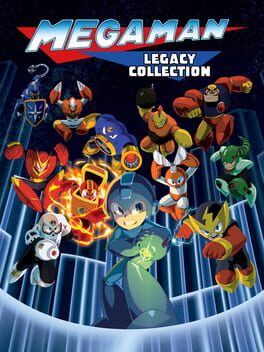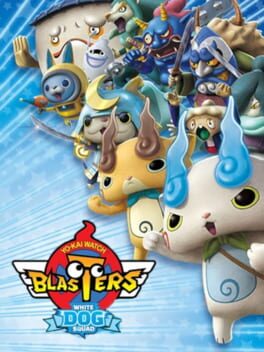darndest
156 reviews liked by darndest
Unicorn Overlord
2024
Coming to this from 13 Sentinels it is almost precisely the opposite of what I expected. Where 13S has a phenomenal plot full of complexity, mystery, and deep characterization, UO's written like generic pulp fantasy—no, not even that, like a monster-of-the-week TV show apisiring to generic pulp fantasy. But where 13S's combat feels sloggy and bolted-on, UO's is consistently fun and reasonably engaging.
The core failing of the game is the fact that word, "reasonably". Although battles in the game are never boring, the systems promise far more than they're actually able to deliver. The game is stuck between two worlds: a stolid traditional Attack Magic Item Flee system and an FFXII-style fully automated luxury battlesim. It's straining towards the latter and it almost manages to grasp it, but the small gap remaining makes all the difference.
The goal of a system like this is to elicit in the player strategic thinking. Consider which characters complement one another's skills, which skills are useful in which circumstances, how to make a unit that's flexible, powerful, and effective against the present challenge. Find clever combinations of skills and equipment that exploit holes in your enemies' defenses. This is what Unicorn Overlord wants, and it's what it narrowly misses.
This is how a battle goes: your unit (composed of several characters) bumps into an enemy unit. Each unit is arranged on its own 3x2 grid, and each character has a set of active and passive actions they use under certain user-defined conditions in initiative order as long as they have resources. You can customize these before the battle, swap equipment with anything in storage, and the game will tell you how much net damage you will deal and how much you will take. Once you're satisfied with your setup, you hit go and the battle plays out automatically. Since resources are very limited, most battles only last a few "turn cycles" as they would exist in a Dragon Quest style system.
In practice, this system has a few critical issues. The first and most noticeable is the degree of variance in each battle. Whether hits are critical or miss entirely is up to the random number generator, which is of course quite sensitive to initial conditions—as indeed are the deterministic behaviors of a battle. This means that you can change a prospective battle from losing to winning often enough by simply rearranging your characters or toggling skills on and off arbitrarily, a practice which quickly overwhelms the amount of time you spend on actual tactical decisions.
The ability to change a unit's programming for each battle also erodes the gap between this system and something more traditional. With some finagling, you can usually choose fairly specifically which enemy will be hit by which attack, allowing you to essentially route around the automation and pre-plan a more standard RPG battle. That level of customizability undermines the conceit of programming.
At the furthest extreme, because you can swap any equipment with anything in storage before a battle or between battles, in principle the best way to play is to keep all your top-tier gear unequipped and just swap it on each unit before they fight and off once they're done. I couldn't bring myself to go to such noxious lengths most of the time, but I did keep a few "just in case" initiative boosters around.
I hypothesize that this game would be substantially more fun if you voluntarily chose not to change your unit's loadout after deploying them. I just wish this were something that was built into the game, rather than something players have to turn to upon discovering that the game doesn't live up to its own goals.
The core failing of the game is the fact that word, "reasonably". Although battles in the game are never boring, the systems promise far more than they're actually able to deliver. The game is stuck between two worlds: a stolid traditional Attack Magic Item Flee system and an FFXII-style fully automated luxury battlesim. It's straining towards the latter and it almost manages to grasp it, but the small gap remaining makes all the difference.
The goal of a system like this is to elicit in the player strategic thinking. Consider which characters complement one another's skills, which skills are useful in which circumstances, how to make a unit that's flexible, powerful, and effective against the present challenge. Find clever combinations of skills and equipment that exploit holes in your enemies' defenses. This is what Unicorn Overlord wants, and it's what it narrowly misses.
This is how a battle goes: your unit (composed of several characters) bumps into an enemy unit. Each unit is arranged on its own 3x2 grid, and each character has a set of active and passive actions they use under certain user-defined conditions in initiative order as long as they have resources. You can customize these before the battle, swap equipment with anything in storage, and the game will tell you how much net damage you will deal and how much you will take. Once you're satisfied with your setup, you hit go and the battle plays out automatically. Since resources are very limited, most battles only last a few "turn cycles" as they would exist in a Dragon Quest style system.
In practice, this system has a few critical issues. The first and most noticeable is the degree of variance in each battle. Whether hits are critical or miss entirely is up to the random number generator, which is of course quite sensitive to initial conditions—as indeed are the deterministic behaviors of a battle. This means that you can change a prospective battle from losing to winning often enough by simply rearranging your characters or toggling skills on and off arbitrarily, a practice which quickly overwhelms the amount of time you spend on actual tactical decisions.
The ability to change a unit's programming for each battle also erodes the gap between this system and something more traditional. With some finagling, you can usually choose fairly specifically which enemy will be hit by which attack, allowing you to essentially route around the automation and pre-plan a more standard RPG battle. That level of customizability undermines the conceit of programming.
At the furthest extreme, because you can swap any equipment with anything in storage before a battle or between battles, in principle the best way to play is to keep all your top-tier gear unequipped and just swap it on each unit before they fight and off once they're done. I couldn't bring myself to go to such noxious lengths most of the time, but I did keep a few "just in case" initiative boosters around.
I hypothesize that this game would be substantially more fun if you voluntarily chose not to change your unit's loadout after deploying them. I just wish this were something that was built into the game, rather than something players have to turn to upon discovering that the game doesn't live up to its own goals.
(JP-only but I hear there is a good fan translation!)
They (the company making the massively famous (in Japan) Sylvanian Family line of children's toys) made a GBC Moon Remix RPG-like for girls. I found about this by going to a random toy/game store in Shinjuku the other day. I ran into a friend visiting from Northern America, he pointed out the place's stock seemed to have renewed from a week ago.
He pointed out a giant stand that was filled with perfect condition GBA/GBC/Virtual Boy games: someone probably found an unopened shipping box sitting in some warehouse and sold it to this store. In it were various games - Telefang, Sanrio Timenet (all pokemon-likes), hamster-raising games... an interesting reminder of the diversity of that era. Lots of amazing (and mediocre lol) art and games.
But this one, Sylvanian Family caught my eye...
The art and setting make it charming enough: it's set in one of those "far off villages across countless mountains," kind of a idyllic, maybe Christian-y kind of fairy tale world. I wouldn't be surprised if there was some story behind whoever created this line of toys and branding: it has a strange innocence to it (https://www.google.com/search?q=sylvanian+family).
You have free reign each day to explore where you want, you're only limited by the need to be back home by 5 PM ... or else! You die!
Actually... the day is considered a "dream" and you just reload your previous save.
Each morning you're forced to greet your parents before leaving. Between that and the curfew there's something very childhood-y, strict, proper, about it.
But alongside that, as you explore more, find things, complete minigames... you'll level up, which gives you more stamina to explore for longer. (Hence the MOON comparison). I feel like you'll find yourself thinking about wherever it was you grew up, and how big it felt as a kid vs. now.
As you level up, time literally slows down. It's a neat way to make you feel like the character is somehow growing older and more experienced as you get more time to wander each day. Eventually you can make your way out to some mountains and get lost in a surprisingly stark-feeling system of caves that feels out of a pokemon or dragon quest dungeon. Of course, you'll always emerge safely out of the other side.
The level design has a nice variety: you mostly wander small mazes of trees or bushes looking for items to pick up, but they still feel distinct. The winding gardens of the city, the open meadows of the grassland, the confusing forests of the mountain. They're simple mazes but it works for the game.
Fast-travel holes emerge in the ground: I felt this kind of contradicted the power of the 'time slowing' leveling system.
Before the advent of crafting systems and these kinds of games being almost entirely about making small children develop compulsive-level collecting and building habits (see recent animal crossing or like, Fantasy Life), these kids adventure games were pretty tight experiences.
Sylvanian Families even has a furniture buying/placement system, but there are so few items and options that it feels more like a Harvest Moon-esque progression where you just get to occasionally change your home.
Funnily enough, the items you buy are literally real toys that kids could buy at the time. Those sly branding marketers! There's a cuteness to some of the items: a piano in which you can practice at and get better each day. A house upgrade which will surprise your dad who usually only ever tells you to not come back too late.
I'm reminded of 1998's Dokidoki Poyacchio (https://www.youtube.com/watch?v=msjpAsvJ5XU) which I somehow haven't logged here yet), or 2001's Uki-uki Carnival (I still have the only review here! Who do I have to pay to get this translated... https://www.backloggd.com/games/sakura-momoko-no-ukiuki-carnival/ ).
Ultimately Sylvanian Family doesn't reach the experimental highs of either of those games - but it's still a well-designed experience that stands on its own and establishes an enjoyable fantasy setting, and manages to do a lot with its stamina system, relatively sparse dialogue and events. Curious to see what the rest of the series holds.
Also the music bangs https://downloads.khinsider.com/game-soundtracks/album/sylvanian-families-otogi-no-kuni-no-pendant-1999-gbc/17%2520BGM%2520%252317.mp3
They (the company making the massively famous (in Japan) Sylvanian Family line of children's toys) made a GBC Moon Remix RPG-like for girls. I found about this by going to a random toy/game store in Shinjuku the other day. I ran into a friend visiting from Northern America, he pointed out the place's stock seemed to have renewed from a week ago.
He pointed out a giant stand that was filled with perfect condition GBA/GBC/Virtual Boy games: someone probably found an unopened shipping box sitting in some warehouse and sold it to this store. In it were various games - Telefang, Sanrio Timenet (all pokemon-likes), hamster-raising games... an interesting reminder of the diversity of that era. Lots of amazing (and mediocre lol) art and games.
But this one, Sylvanian Family caught my eye...
The art and setting make it charming enough: it's set in one of those "far off villages across countless mountains," kind of a idyllic, maybe Christian-y kind of fairy tale world. I wouldn't be surprised if there was some story behind whoever created this line of toys and branding: it has a strange innocence to it (https://www.google.com/search?q=sylvanian+family).
You have free reign each day to explore where you want, you're only limited by the need to be back home by 5 PM ... or else! You die!
Actually... the day is considered a "dream" and you just reload your previous save.
Each morning you're forced to greet your parents before leaving. Between that and the curfew there's something very childhood-y, strict, proper, about it.
But alongside that, as you explore more, find things, complete minigames... you'll level up, which gives you more stamina to explore for longer. (Hence the MOON comparison). I feel like you'll find yourself thinking about wherever it was you grew up, and how big it felt as a kid vs. now.
As you level up, time literally slows down. It's a neat way to make you feel like the character is somehow growing older and more experienced as you get more time to wander each day. Eventually you can make your way out to some mountains and get lost in a surprisingly stark-feeling system of caves that feels out of a pokemon or dragon quest dungeon. Of course, you'll always emerge safely out of the other side.
The level design has a nice variety: you mostly wander small mazes of trees or bushes looking for items to pick up, but they still feel distinct. The winding gardens of the city, the open meadows of the grassland, the confusing forests of the mountain. They're simple mazes but it works for the game.
Fast-travel holes emerge in the ground: I felt this kind of contradicted the power of the 'time slowing' leveling system.
Before the advent of crafting systems and these kinds of games being almost entirely about making small children develop compulsive-level collecting and building habits (see recent animal crossing or like, Fantasy Life), these kids adventure games were pretty tight experiences.
Sylvanian Families even has a furniture buying/placement system, but there are so few items and options that it feels more like a Harvest Moon-esque progression where you just get to occasionally change your home.
Funnily enough, the items you buy are literally real toys that kids could buy at the time. Those sly branding marketers! There's a cuteness to some of the items: a piano in which you can practice at and get better each day. A house upgrade which will surprise your dad who usually only ever tells you to not come back too late.
I'm reminded of 1998's Dokidoki Poyacchio (https://www.youtube.com/watch?v=msjpAsvJ5XU) which I somehow haven't logged here yet), or 2001's Uki-uki Carnival (I still have the only review here! Who do I have to pay to get this translated... https://www.backloggd.com/games/sakura-momoko-no-ukiuki-carnival/ ).
Ultimately Sylvanian Family doesn't reach the experimental highs of either of those games - but it's still a well-designed experience that stands on its own and establishes an enjoyable fantasy setting, and manages to do a lot with its stamina system, relatively sparse dialogue and events. Curious to see what the rest of the series holds.
Also the music bangs https://downloads.khinsider.com/game-soundtracks/album/sylvanian-families-otogi-no-kuni-no-pendant-1999-gbc/17%2520BGM%2520%252317.mp3
Sparkster is so cool! They tick so many random checkboxes for me!
[X] Anthro
[X] Cool Armor
[X] Jet Pack
[X] Goggles (Goggles are cool)
[X] Expert Mech Pilot
What endeared them so much to me too was actually their idle animation! They look so jovial, they're happpy to be the hero! Sparkster doesn't brood (Ignore the NA cover here), he's anxious to start the day and get to the rescue of their fair princess! He's a gallant jet-propelled knight who's a zoom zoomin' all around and beating up all the bad guys! Mr. Nutz, Punky Skunk and Zero The Kamikaze Squirrel are so angry that Sparkster is actually awesome! They are so mad! Sonic's got nothin' on Sparkster! Except merchandise apparently! What gives Konami? Where's my Sparkster nendoroid , Sparkster YGO cards, Sparkster party accessories, and Sparkster line of clothing?
Ah well, knowing my luck they'd use this look instead, and I'd be an absurdly sad rabbit. Fuck that guy, this is the boy you want.
This game rips, it's Saturday Morning Cartoon down to the empowering theme music that blares from the first stage and goes off after every victory. Sparkster's here to fuck shit up! Those damn pigs won't know what hit'em! You got that patented Konami difficulty, but thankfully they kept themselves in line and didn't Bayou Billy this one. As a matter of fact we actually got all the difficulties unlocked by default over here in NA! Thank the lord above that Konami wasn't dumb enough to make their mascot platformer harder than 90% of the Famicom library, although they were cheeky enough to call Japanese "Normal" the "Children" difficulty and cut you off from the final boss if you played on that. Couldn't help yourselves could you?
Konami: "Nope."
Easily one of the most memorable titles I ever played on the Genesis back then, you know it's memorable when I didn't even own this shit and only played on Sega Channel! I so wish I had owned it growing up though! I would've been a master at it and been Rocket Royalty of some sorts.
You're the coolest Sparkster! Look at him! AAAAA HE'S SO FUCKIN' COOL!!!
[X] Anthro
[X] Cool Armor
[X] Jet Pack
[X] Goggles (Goggles are cool)
[X] Expert Mech Pilot
What endeared them so much to me too was actually their idle animation! They look so jovial, they're happpy to be the hero! Sparkster doesn't brood (Ignore the NA cover here), he's anxious to start the day and get to the rescue of their fair princess! He's a gallant jet-propelled knight who's a zoom zoomin' all around and beating up all the bad guys! Mr. Nutz, Punky Skunk and Zero The Kamikaze Squirrel are so angry that Sparkster is actually awesome! They are so mad! Sonic's got nothin' on Sparkster! Except merchandise apparently! What gives Konami? Where's my Sparkster nendoroid , Sparkster YGO cards, Sparkster party accessories, and Sparkster line of clothing?
Ah well, knowing my luck they'd use this look instead, and I'd be an absurdly sad rabbit. Fuck that guy, this is the boy you want.
This game rips, it's Saturday Morning Cartoon down to the empowering theme music that blares from the first stage and goes off after every victory. Sparkster's here to fuck shit up! Those damn pigs won't know what hit'em! You got that patented Konami difficulty, but thankfully they kept themselves in line and didn't Bayou Billy this one. As a matter of fact we actually got all the difficulties unlocked by default over here in NA! Thank the lord above that Konami wasn't dumb enough to make their mascot platformer harder than 90% of the Famicom library, although they were cheeky enough to call Japanese "Normal" the "Children" difficulty and cut you off from the final boss if you played on that. Couldn't help yourselves could you?
Konami: "Nope."
Easily one of the most memorable titles I ever played on the Genesis back then, you know it's memorable when I didn't even own this shit and only played on Sega Channel! I so wish I had owned it growing up though! I would've been a master at it and been Rocket Royalty of some sorts.
You're the coolest Sparkster! Look at him! AAAAA HE'S SO FUCKIN' COOL!!!
Xenogears
1998
Gave myself a day to kinda just sit with the whole experience of my first playthrough. Xenogears is one of those games that kinda just existed within the culture in a way where I always heard people vaguely gesture at its greatness, but never actually got any full details about what exactly made it so great. So for years and years and years and years and years I kinda just kept putting it off, playing many other games before and after it, hearing about its complexities but never really the details as of what those complexities were. Finally experiencing it for myself I completely get it.
An experience that is some parts Neon Genesis Evangelion, some parts Gundam some parts sci-fi novels and films, Xenogears wears all of its inspirations firmly on its sleeve and proudly bears it all as it goes into its own psychological, religious explorations of the self.
The ways in which it talks about running away from your problems rather than dealing with them and how that inevitably comes to bite you in the ass, there's a quite good example with the martial arts tournament you enter that genuinely surprised me when it happened.
The ways it delves into how trauma can inform and explain behaviors, can cause people to drift one way or another instead of facing the real problems within themselves, be lead to more and differing kinds of abuses, or completely shut themselves down due to their inability to truly cope with the things that've happened to them. But it also firmly discusses how important it is to continue to live, to continue to fight and go on despite the struggles we face in life, how we have to take responsibility for ourselves and the things we do despite our traumas, that again our traumas can be an explanation for behaviors and actions you may take, but at the end of the day you have to be responsible for your own actions.
There are a few characters I do wish were able to get more from the story (Rico, Maria, Chu Chu) and the very clear rushing of things does absolutely fuck with what was clearly supposed to be this ambitious and sprawling experience, though I will say in spite of the clear rush job that Disc 2 ends up as, I genuinely still quite loved the way they handle the presentation and style. Some of the quick cuts are really sharp and effective, I dig the kinda play stage type beat they do for some of the cutscenes they didn't have time to fully make enviornments for, I like the way they frame each part from differing characters POV's. There's a lot of cool things that make that second disc really interesting, kinda reflecting episodes 25 and 26 of NGE in ways.
It's such a strange feeling in ways cause like I kinda despised the gameplay at times (ground combat relies a bit too heavily on deathblows and grinding them out where-as I feel like the Gear combat is a bit better balanced in terms of building up to your deathblows and having to strategically manage your fuel levels in interesting ways). But even though I wasn't huge on the combat or some of the dungeon design (fuck Babel Tower) the whole thing just really came together for me. Everything it was doing was absolutely fuckin aces, it honestly reminded me of watching NGE for the first time as a teenager AS WELL AS watching both Shiki-Jitsu and Rebuild of Evangelion 3.0+1.0 with what exactly it was going for in its messaging and just how much it resonated with me. How much Fei's character arc resonated with me, how dense and packed of an experience it was overall.
I think I can safely say that I'm getting into the series cause I wanna see what else can come from anyone involved who was able to put this together.
An experience that is some parts Neon Genesis Evangelion, some parts Gundam some parts sci-fi novels and films, Xenogears wears all of its inspirations firmly on its sleeve and proudly bears it all as it goes into its own psychological, religious explorations of the self.
The ways in which it talks about running away from your problems rather than dealing with them and how that inevitably comes to bite you in the ass, there's a quite good example with the martial arts tournament you enter that genuinely surprised me when it happened.
The ways it delves into how trauma can inform and explain behaviors, can cause people to drift one way or another instead of facing the real problems within themselves, be lead to more and differing kinds of abuses, or completely shut themselves down due to their inability to truly cope with the things that've happened to them. But it also firmly discusses how important it is to continue to live, to continue to fight and go on despite the struggles we face in life, how we have to take responsibility for ourselves and the things we do despite our traumas, that again our traumas can be an explanation for behaviors and actions you may take, but at the end of the day you have to be responsible for your own actions.
There are a few characters I do wish were able to get more from the story (Rico, Maria, Chu Chu) and the very clear rushing of things does absolutely fuck with what was clearly supposed to be this ambitious and sprawling experience, though I will say in spite of the clear rush job that Disc 2 ends up as, I genuinely still quite loved the way they handle the presentation and style. Some of the quick cuts are really sharp and effective, I dig the kinda play stage type beat they do for some of the cutscenes they didn't have time to fully make enviornments for, I like the way they frame each part from differing characters POV's. There's a lot of cool things that make that second disc really interesting, kinda reflecting episodes 25 and 26 of NGE in ways.
It's such a strange feeling in ways cause like I kinda despised the gameplay at times (ground combat relies a bit too heavily on deathblows and grinding them out where-as I feel like the Gear combat is a bit better balanced in terms of building up to your deathblows and having to strategically manage your fuel levels in interesting ways). But even though I wasn't huge on the combat or some of the dungeon design (fuck Babel Tower) the whole thing just really came together for me. Everything it was doing was absolutely fuckin aces, it honestly reminded me of watching NGE for the first time as a teenager AS WELL AS watching both Shiki-Jitsu and Rebuild of Evangelion 3.0+1.0 with what exactly it was going for in its messaging and just how much it resonated with me. How much Fei's character arc resonated with me, how dense and packed of an experience it was overall.
I think I can safely say that I'm getting into the series cause I wanna see what else can come from anyone involved who was able to put this together.
Mystic Ark
1995
Produce's Mystic Ark effectively updates an old RPG idea: What used to be the 'Examine' command (a menu-based function that searches for pickups/NPCs in the player's direction, later replaced by the interact button) is now a full-fledged system. Also found in their previous Elnard (from which they also inherited its radar-map encounters), this time the feature is used not only for collecting items, investigating objects and talking, but also for matching the former with the second to make progress. Not surprisingly, their gameplay is more puzzle-oriented than the average JRPG. Its dungeons compose a decent overview of adventure game techniques (push blocks, levers, crumbling-floor traps, etc.), but the quirky levels, the wealth of creative and funny moments, and the equally complex hub world made their method quite unique. Plenty of tasks are just tricky enough to require a bit of experimentation and thinking (or guides), but rarely do they leave the player directionless.
Combat - instead, isn't nearly as brainy nor exciting; turn-based frontview battling that would have felt outdated even in '95, despite improving over Elnard in many ways (notably the addition of modular auto-tactics and a range of skills across both magic and attack commands). Sometimes they lapse into mazes or standard trials, and the pacing & menus resemble that of old-school crawlers. But across its towns, scenarios (check out the brilliant 'haunted-house-with-environmental-puzzles' of act 6), enemy designs, gameplay variety (including monster capture and minigames), QoL (minimizing backtracking burnout by allowing fast travel from virtually anywhere), characters, cutscenes and graphics, Produce shows remarkable progress.
This work, along with the more Zelda-rooted Lufia 2 (and Wild Arms to an extent), were the JRPGs that upheld adventure game traditions in an era that favored storytelling and combat, which - arguably, were much easier ways to inflate the runtime.
Combat - instead, isn't nearly as brainy nor exciting; turn-based frontview battling that would have felt outdated even in '95, despite improving over Elnard in many ways (notably the addition of modular auto-tactics and a range of skills across both magic and attack commands). Sometimes they lapse into mazes or standard trials, and the pacing & menus resemble that of old-school crawlers. But across its towns, scenarios (check out the brilliant 'haunted-house-with-environmental-puzzles' of act 6), enemy designs, gameplay variety (including monster capture and minigames), QoL (minimizing backtracking burnout by allowing fast travel from virtually anywhere), characters, cutscenes and graphics, Produce shows remarkable progress.
This work, along with the more Zelda-rooted Lufia 2 (and Wild Arms to an extent), were the JRPGs that upheld adventure game traditions in an era that favored storytelling and combat, which - arguably, were much easier ways to inflate the runtime.
Sepas Channel
2008
Wow. What a game. As you can probably tell from how I'm writing this so long after my playthrough, it's stuck in my head.
In the west this gets compared to Mother/Earthbound a lot, but this is a game about individual characters and their very personal struggles that leads to a very different kind of storytelling than Mother goes for. The focus is less on the events, less on an epic world-scale story, and more about the very specific personal journeys of the protagonists.
I think Boy's existential struggle for "what does it mean to find your place in the world" is a pretty common feeling, but it's expressed with a depth and conviction that really comes through. His parasocial relationship with Sebastian is interesting to reevaluate in the era of streamers and "accessible" modern celebrities. It pairs interestingly with Sebastian's nervousness about taking responsibility for his own art, his ambivalence as to whether anything he says matters.
Bonnie's arc is maybe the most nuanced and interesting, not only her struggles with her own art and what it means to expect something from an audience when she shares it, but also her struggles with how and whether to live in the future.
It's impressive how smart the map design is. This is a feature phone game - it couldn't have had more than 512KB of storage. The very clever reuse of maps, having characters retread their journeys frequently, is a smart way of making the most of what they have. Instead of feeling repetitive, it encourages you to develop a very close, personal relationship with the city.
I dearly hope this gets a translation of some kind someday. I want more people to be able to experience it.
In the west this gets compared to Mother/Earthbound a lot, but this is a game about individual characters and their very personal struggles that leads to a very different kind of storytelling than Mother goes for. The focus is less on the events, less on an epic world-scale story, and more about the very specific personal journeys of the protagonists.
I think Boy's existential struggle for "what does it mean to find your place in the world" is a pretty common feeling, but it's expressed with a depth and conviction that really comes through. His parasocial relationship with Sebastian is interesting to reevaluate in the era of streamers and "accessible" modern celebrities. It pairs interestingly with Sebastian's nervousness about taking responsibility for his own art, his ambivalence as to whether anything he says matters.
Bonnie's arc is maybe the most nuanced and interesting, not only her struggles with her own art and what it means to expect something from an audience when she shares it, but also her struggles with how and whether to live in the future.
It's impressive how smart the map design is. This is a feature phone game - it couldn't have had more than 512KB of storage. The very clever reuse of maps, having characters retread their journeys frequently, is a smart way of making the most of what they have. Instead of feeling repetitive, it encourages you to develop a very close, personal relationship with the city.
I dearly hope this gets a translation of some kind someday. I want more people to be able to experience it.
Metroid Fusion
2002
the discomfort zone got too comfortable so we made the comfort zone discomfortable. samus: meet samus
where super dove uncritically into the power fantasy that metroid II (the game with a literal Genocide Counter in the UI) unmasked and deflated, this feels like it's turning it inward against you personally. Your body, Your likeness, and Your autonomy hijacked; Your celebratory past tense role as (repeated) casual annihilationist to reckon with and cower from
it operates as something of a Super Negative Image Metroid: an inversion right down to the uncomfortable, choking grip of the direction. all that clammy ADAMsplaining, those sequestered zones, the redline urgency; everything's dialed perfectly into the exact same channel with uniform intent. even the woozy alien psychedelia's been spirited away in favour of clinical, detached interiors and astroturfed xerox biomes with some of the most appropriately sterile Oops No Backlight lighting on the GBA
and no, it obviously doesn't accomplish the same things as its predecessors, but it's not attempting to. this is a game about lack of control, and altering the format would be akin to breaking the spinal column that holds it upright. fusion's big successes (the pacing, brevity, tonal and thematic consonance, and delicate curation of tension and challenge) are the result of its structural changes. being shunted around a tiny sarcophagus isn't a flaw, it's the entire premise. duh
even without all that though it's impossible for me not to love a game with nightmare, the Profaned Baja Blast Suit, AQA's sunken banger, shots like this, and those absolutely psychotic ridley screams
quite possibly the best SA-X heavy fusion since the sultry sounds of steely dan
where super dove uncritically into the power fantasy that metroid II (the game with a literal Genocide Counter in the UI) unmasked and deflated, this feels like it's turning it inward against you personally. Your body, Your likeness, and Your autonomy hijacked; Your celebratory past tense role as (repeated) casual annihilationist to reckon with and cower from
it operates as something of a Super Negative Image Metroid: an inversion right down to the uncomfortable, choking grip of the direction. all that clammy ADAMsplaining, those sequestered zones, the redline urgency; everything's dialed perfectly into the exact same channel with uniform intent. even the woozy alien psychedelia's been spirited away in favour of clinical, detached interiors and astroturfed xerox biomes with some of the most appropriately sterile Oops No Backlight lighting on the GBA
and no, it obviously doesn't accomplish the same things as its predecessors, but it's not attempting to. this is a game about lack of control, and altering the format would be akin to breaking the spinal column that holds it upright. fusion's big successes (the pacing, brevity, tonal and thematic consonance, and delicate curation of tension and challenge) are the result of its structural changes. being shunted around a tiny sarcophagus isn't a flaw, it's the entire premise. duh
even without all that though it's impossible for me not to love a game with nightmare, the Profaned Baja Blast Suit, AQA's sunken banger, shots like this, and those absolutely psychotic ridley screams
quite possibly the best SA-X heavy fusion since the sultry sounds of steely dan
Super Metroid
1994
outside of the (understandably) on-the-nose coloured doorways nearly every instance of environmental interaction is rich and tactile. thirty years later it's still a wonder to grope and paw at every (Possibly Maybe) malleable surface and leverage every new upgrade toward greater structural manipulation and command
in ensuring how and when are given as much significance as what and where it forms a relationship between actor and environment that bears uncommonly personal patterns and markings as you learn to use Your body as an implement to interface with the world. sidepaths and back alleys that carve Under - Over - Through reshape the familiar thru layered mechanical discovery and shift the internal v external dynamic in turn; mastery of the self begetting exponential mastery of the other
a fitting problem then that the biocircuitry, plunging intestinal mazes, and gloomy dark ambient synthesis quickly become less something to endure so much as to dominate; the dissonance for show, and the brutality nakedly glamorous and one sided. so much of it exists in service to the pursuit of (Your) power, kneeling with its neck outstretched waiting to feel bones shatter for Your gratification. sure, I feel obscenely powerful, but I'd rather feel anything else
in ensuring how and when are given as much significance as what and where it forms a relationship between actor and environment that bears uncommonly personal patterns and markings as you learn to use Your body as an implement to interface with the world. sidepaths and back alleys that carve Under - Over - Through reshape the familiar thru layered mechanical discovery and shift the internal v external dynamic in turn; mastery of the self begetting exponential mastery of the other
a fitting problem then that the biocircuitry, plunging intestinal mazes, and gloomy dark ambient synthesis quickly become less something to endure so much as to dominate; the dissonance for show, and the brutality nakedly glamorous and one sided. so much of it exists in service to the pursuit of (Your) power, kneeling with its neck outstretched waiting to feel bones shatter for Your gratification. sure, I feel obscenely powerful, but I'd rather feel anything else
Monster Slider
1997
i gotta blame the character powers, which were unimaginative, and the lack of garbage cancelling, which is necessary to create offence and defense, preventing this game from being a perfect 10. but GOSH what a good time! Monster Slider is a tour-de-force, of clear vision and crafy execution. its design kernel is brilliantly simple, building off of Columns-style combo design to some truly big-brained-bonkers-nonsense. i felt, once again, while playing a puzzle game, the feeling of flight. super excited for Kokountouzai Eto Monogatari, by the same devs, and to check out the Saturn version on my own terms! as long as i can play as Katherine the Skeleton Man, the perfect 10 is automatic, believe me.
17 lists liked by darndest
by MrWarm |
13 Games
by abri |
200 Games
by JetWolfEX |
66 Games
by hazys |
55 Games
by vehemently |
696 Games
by MendelPalace |
72 Games
by rhinestonehawk |
28 Games
by Dalaamclouds |
8 Games
